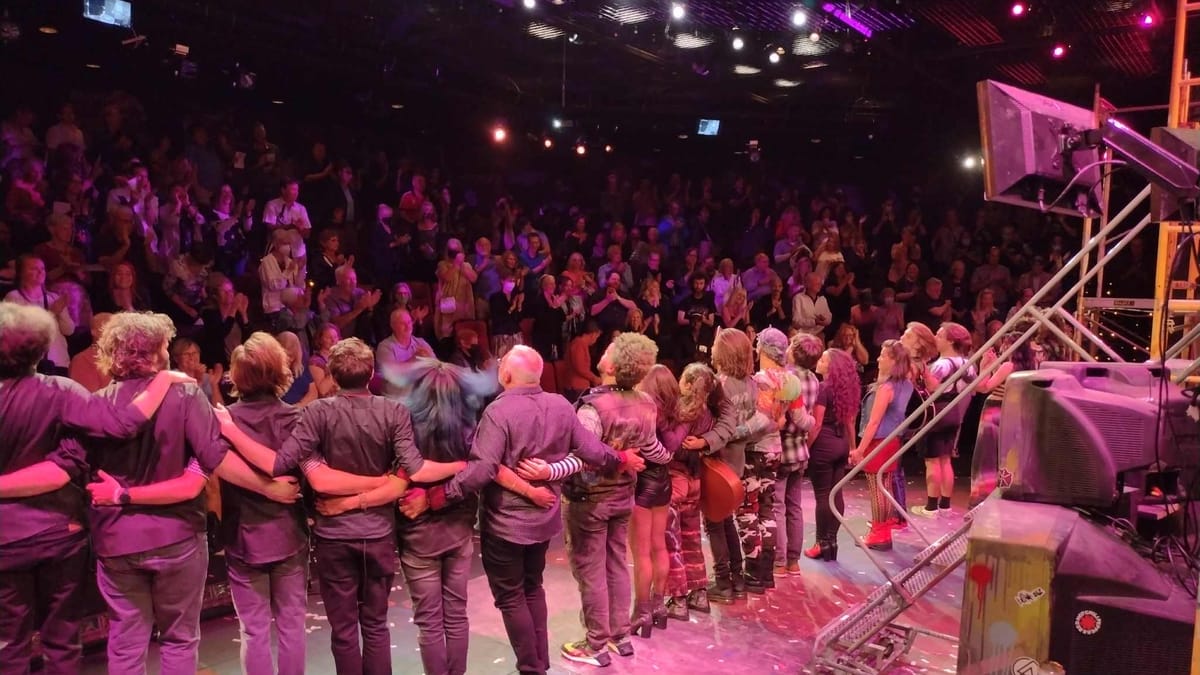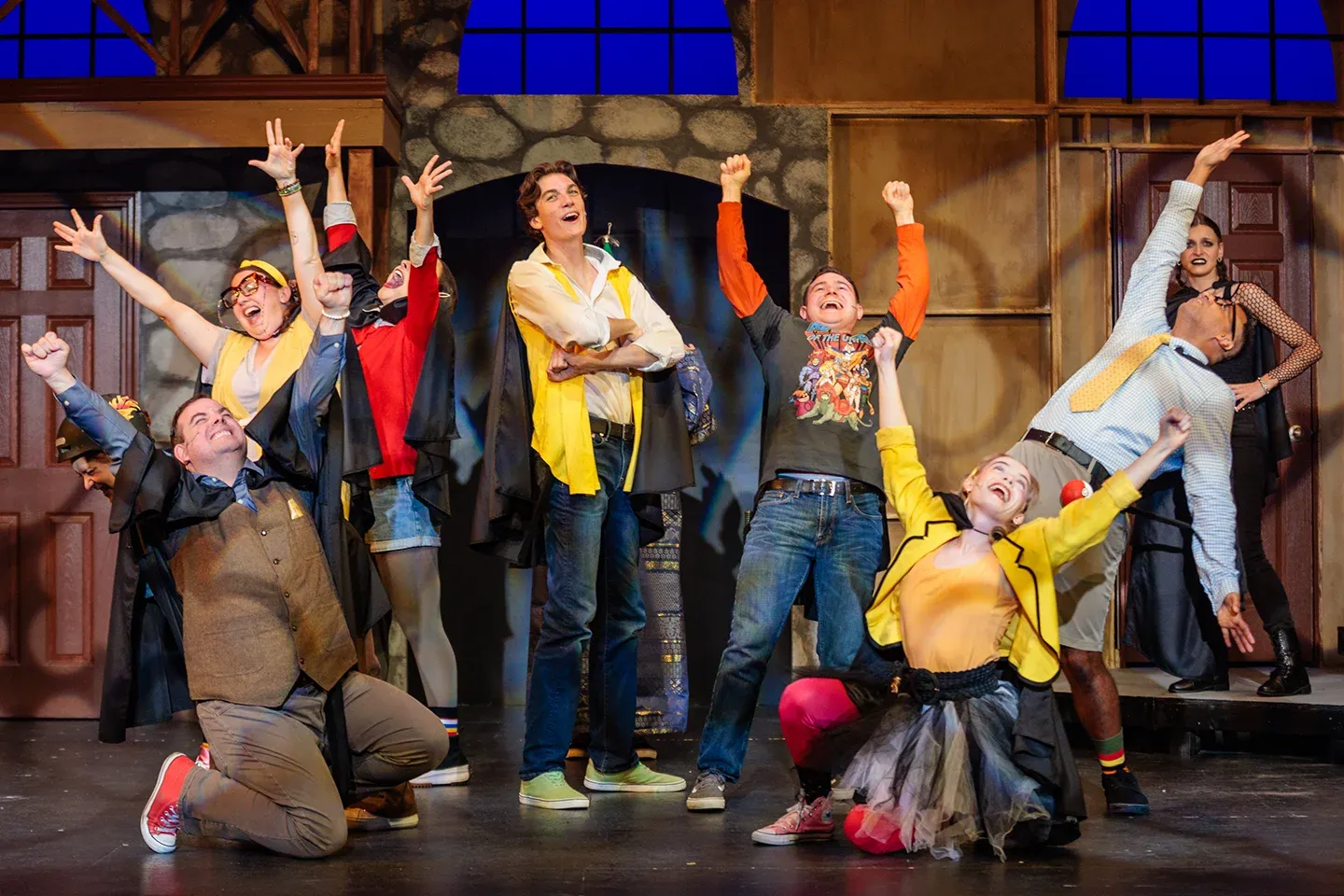Some Theatres Say Subscriptions Are Dying. In Tampa Bay, We Don’t Really Know.

We asked local companies if they are feeling the effects other organizations across the country are reporting—and instead of answers we got silence.
By Avery Anderson
At a theatre in Knoxville, Tennessee, half the subscribers disappeared. In Seattle, a Broadway house lost more than 6,000 of them. In Skokie, Illinois, the number fell from 5,700 to 3,200.
Across the country, subscriptions—the pay-upfront, season-long ticket model that once underwrote American theatre—are drying up. And the collapse is hitting at the exact moment many theatres can least afford it.
“How do I get the audience back, and once I get them in the door, how do I keep them for the next show?” asked Ken Martin, artistic director of the Clarence Brown Theater, in a recent New York Times story. The company, affiliated with the University of Tennessee, lost half its subscribers since the pandemic.
That story is hardly unique. According to a national survey by American Theatre Magazine, 42 percent of companies reported subscription drops of 30 percent or more since 2019. Another 21 percent said they were “somewhat down.” In short: nearly two-thirds of theatres have lost subscribers in the past five years.
And yet, it’s not all doom and donor fatigue. A surprising number of midsize and smaller companies—especially those who embraced flexible memberships or pay-monthly models—are not only surviving, but growing.
“The subscription model is just fine,” said Jerome Davis, artistic director of Burning Coal Theatre in North Carolina, where subscriptions are up 60 percent.
Which made us wonder: What’s happening here in Tampa Bay?
We asked. And asked. And asked again.
We reached out to six major local theatre companies—American Stage, freeFall Theatre, Jobsite Theatre, Stageworks Theatre, Urbanite, and Florida Studio Theatre—with a simple set of questions:
- How many subscribers did you have this past season?
- What was your subscription revenue?
- What did you earn overall in ticket sales?
- How much did you raise in donations?
- And did you end the year with a surplus—or a shortfall?
Only one company—Jobsite Theater—shared its full data:
- 454 subscribers- still a little down from their 2018-19 high of 515
- $48,756 in subscription revenue
- $513,967 in ticket sales
- $154,195 in contributed (grants and donations) revenue
- $658,162 operating budget
- A $10,000 surplus, thanks to the success of PUFFS.
Everyone else? Either declined or ghosted.

freeFall Theatre gave context, sharing that their operating budget is now $1.6 million and that they're “still not at pre-pandemic levels of support both in terms of fundraising and subscription sales,” says marketing director Matt McGee. “I have found that patrons are more likely to pick and choose what shows they go to as opposed to buying the whole series as they have in years past.”
They also highlighted new strategies: monthly flex subscriptions, YouTube expansion, audience amenities, and licensing original productions. But when asked to share revenue totals, they declined.
American Stage declined to participate. When we followed up asking why, they didn’t respond.
Stageworks did say they would get back to us.
We did not hear from Urbanite or Florida Studio Theatre.
So we pulled the receipts.
Every nonprofit in the U.S. is required to file an annual Form 990 with the IRS. It includes total revenue, expenses, donations, and net assets. And while they lag by a year or more, they paint a far more honest picture than a brochure ever could.
So is it silly for these companies not to share the data since it will be in the public record soon? Yes.
Are they within their right to make us wait until they file their 990? Also yes.
We pulled the most recent filings for seven of Tampa Bay's major theatre companies. We also pulled their 2019 filings—the last pre-COVID year—to compare.
Who's running hot, who's running red?
Jobsite Theater: In 2019, the resident theatre company of the Straz reported a surplus of $27,789. Since then they have grown, and their expenses have grown, but as they offered up, they ended with a $10,000 surplus this year. And they’re doing it without leaning heavily on subscriptions.
“We have not leaned as hard into subscriptions as other companies have,” said Producing Artistic Director David M. Jenkins. “We’ve always been able to sell a strong majority of our tickets as singles.”
Instead, they’ve leaned into dynamic pricing. Tickets start cheaper and rise based on demand—rewarding early buyers, while maximizing revenue.
“It allows us to plan more effectively without pricing people out,” Jenkins said. “We’re not reliant on subscribers in the way others might be.”
freeFall Theatre: In 2019, they had a profit of $382,989. In their most recent filing? A $62,181 deficit. Expenses outpaced revenue, with 55% of their revenue coming from contributions.
Stageworks Theatre: Tampa’s oldest professional theatre company reported their first deficit since the pandemic in their most recent filing. At the end of their 2024 fiscal year they were in the red $110,303, but had an almost even split of ticket sales and donations.
American Stage: The numbers from 2019 to 2023 for American Stage almost read as a different company. At the end of their 2018–19 season, the company reported a profit of $802,959. Flash forward to August 2023, they experienced a half-million dollar deficit ($523,198)—the first time in a decade they reported a loss.
Asolo Rep: Their most recent filing reported a loss of $820,663. In 2019, they netted $1,771,978.
Florida Studio Theatre: FST seems to be the outlier. At the end of 2023, they reported a profit of $1,561,616—but still down radically from 2019, when they reported a profit of $5,843,066.
Urbanite Theatre: The youngest of the major players in Tampa Bay, Urbanite reported $10,597 profit in 2019—they were only five years old then. More recently, at the end of their 10th season, they reported a loss of $29,848.
What We Lose Without a Base
Subscription models aren’t just a business tactic. For decades, they’ve underwritten creative risk in American theatre.
When audiences commit to a full season, they free theatres to program lesser-known plays, emerging voices, and new work. But when subscriptions vanish, every show becomes a gamble. Marketing costs skyrocket. Familiarity wins out over boldness.
That’s the quiet story behind these 990s: the drop in earned revenue, the growing dependence on donors, the deficits where surpluses used to be. They all point to the same thing: it’s getting harder to be brave.
Not everyone is clinging to the old models. freeFall is experimenting with monthly passes and new revenue streams. Jobsite is thriving on single-ticket buyers, dynamic pricing, and strategic flexibility.
“We’re not standing still,” Jenkins said. “And honestly, I don’t think any of us can afford to.”
Even in Tampa Bay, where the arts scene punches above its weight, the ground is shifting. Subscriptions may not be dead. But the era of relying on them? That’s over.
